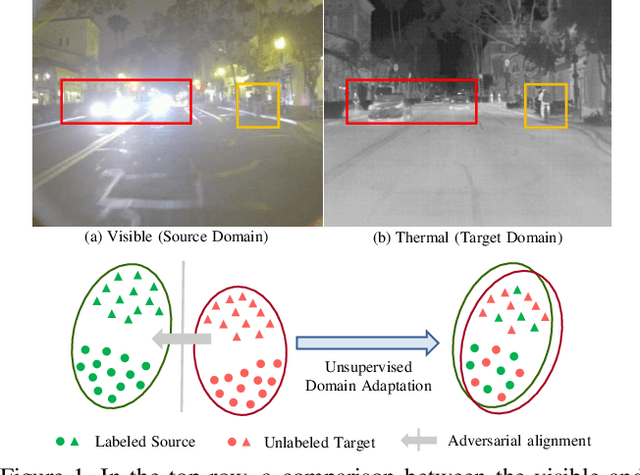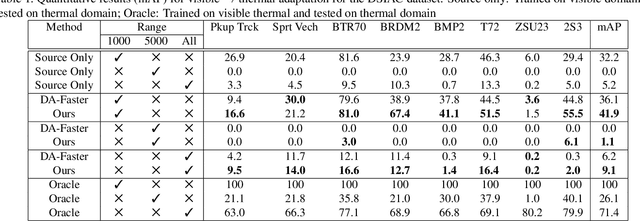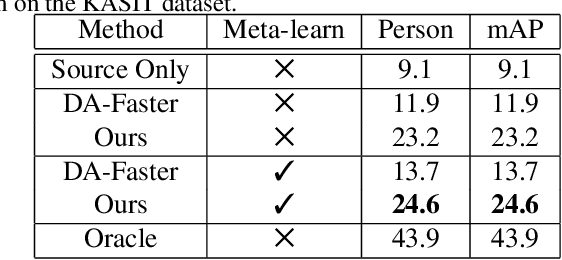Meta-UDA: Unsupervised Domain Adaptive Thermal Object Detection using Meta-Learning
Paper and Code
Oct 07, 2021



Object detectors trained on large-scale RGB datasets are being extensively employed in real-world applications. However, these RGB-trained models suffer a performance drop under adverse illumination and lighting conditions. Infrared (IR) cameras are robust under such conditions and can be helpful in real-world applications. Though thermal cameras are widely used for military applications and increasingly for commercial applications, there is a lack of robust algorithms to robustly exploit the thermal imagery due to the limited availability of labeled thermal data. In this work, we aim to enhance the object detection performance in the thermal domain by leveraging the labeled visible domain data in an Unsupervised Domain Adaptation (UDA) setting. We propose an algorithm agnostic meta-learning framework to improve existing UDA methods instead of proposing a new UDA strategy. We achieve this by meta-learning the initial condition of the detector, which facilitates the adaptation process with fine updates without overfitting or getting stuck at local optima. However, meta-learning the initial condition for the detection scenario is computationally heavy due to long and intractable computation graphs. Therefore, we propose an online meta-learning paradigm which performs online updates resulting in a short and tractable computation graph. To this end, we demonstrate the superiority of our method over many baselines in the UDA setting, producing a state-of-the-art thermal detector for the KAIST and DSIAC datasets.
 Add to Chrome
Add to Chrome Add to Firefox
Add to Firefox Add to Edge
Add to Edge